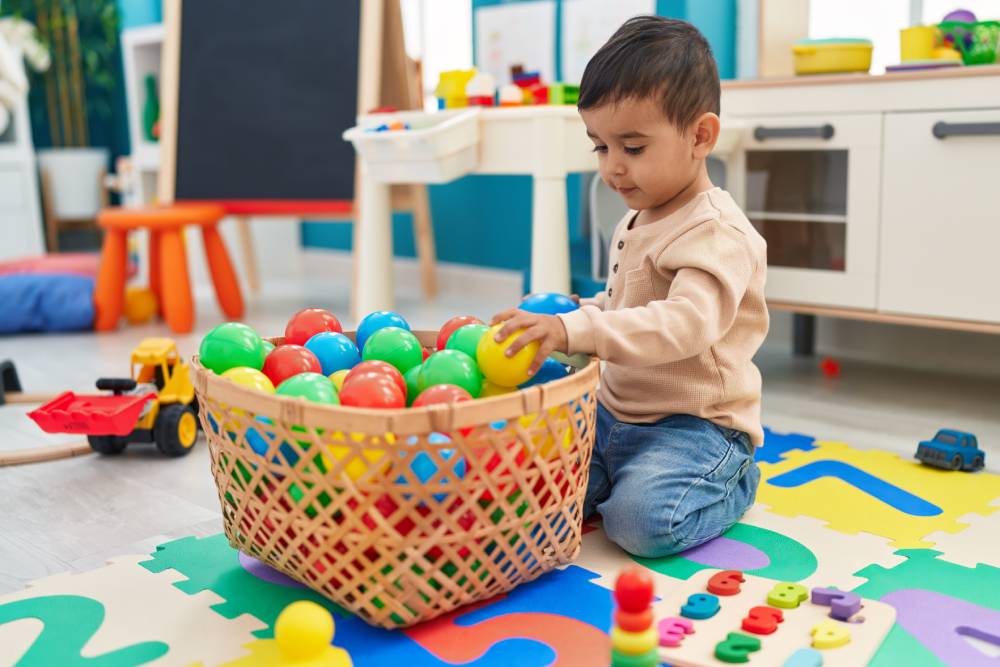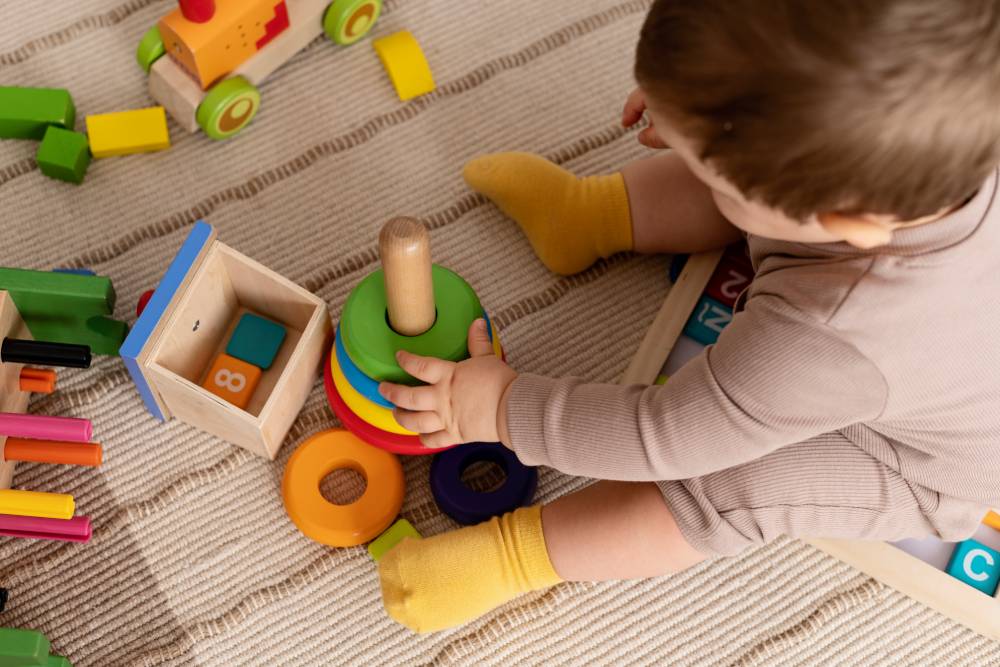Social skills are essential for children to develop meaningful relationships and navigate social situations successfully. However, not all children naturally acquire these skills. Some children, especially those with autism spectrum disorder (ASD), ADHD, or social anxiety, may struggle to form and maintain peer connections. This is where social skills therapy for kids becomes a game-changer.
The Importance of Social Skills
Social skills are the foundation of effective communication and meaningful interactions. They include sharing, taking turns, understanding nonverbal cues, and empathizing with others. When children lack these skills, they may face challenges in forming friendships or working in groups.
Strong social skills are linked to improved emotional well-being and academic success. Moreover, children with good social skills are better equipped to handle conflicts and adapt to new environments. Early intervention through social skills therapy for kids is crucial to address these challenges effectively.
Benefits of Social Skills Therapy
1. Enhanced Communication Abilities
Social skills therapy not only teaches children how to express themselves clearly but also helps them understand the feelings of others. Consequently, this fosters better conversations and more meaningful interactions. Over time, children become more comfortable engaging in discussions, which leads to stronger communication skills in various social settings.
2. Improved Emotional Regulation
Through therapy, children gradually learn how to manage emotions like frustration, anger, or anxiety in social situations. As a result, interactions become smoother and more positive. Furthermore, these emotional regulation skills help children handle challenging scenarios more effectively, ensuring they can navigate complex social dynamics with ease.
3. Stronger Peer Relationships
With guided practice, children gain the confidence to approach peers, initiate conversations, and build lasting friendships. In addition, therapy provides a safe space for practicing these interactions, which makes it easier for children to replicate them in real-life situations. Over time, these skills help children form meaningful and enduring peer connections.
4. Better Teamwork and Collaboration
Therapy emphasizes the importance of cooperation and shared responsibilities, which are essential for group activities and school projects. Moreover, children learn how to listen to others’ perspectives and contribute their ideas effectively. Consequently, they become valuable team members who can collaborate successfully in various environments.
5. Increased Self-Esteem
As children master social skills, they feel more confident in social settings, significantly boosting their self-esteem and overall happiness. Additionally, these successes encourage them to take on new social challenges, further enhancing their sense of achievement and personal growth. Over time, this leads to a more positive self-image and greater social competence.
Techniques Used in Social Skills Therapy
Therapists use various evidence-based techniques to teach and reinforce social skills. These strategies are designed to help children navigate social situations confidently. Some of these methods include:
- Role-Playing Scenarios
Role-playing allows children to practice real-life interactions in a safe, controlled environment. This method gives them the confidence to approach similar situations in real life. By acting out different social scenarios, children become more familiar with expected behaviors and responses. - Social Stories
Social stories involve short narratives that describe specific social scenarios and how to respond. They are an excellent tool for explaining social expectations in a way children can easily understand. By reading or listening to these stories, children become more prepared for real-life interactions. - Group Activities
Group sessions provide an opportunity for children to interact with peers and practice teamwork. These activities foster cooperation, sharing, and problem-solving skills. Additionally, children learn how to handle social dynamics, such as waiting their turn or resolving conflicts in a group setting. - Visual Aids and Modeling
Visual aids such as charts, pictures, or videos help children understand social behaviors more clearly. By seeing how others interact, children can better comprehend the social cues they should observe. This method also helps reinforce key concepts, making them more memorable and easy to apply. - Positive Reinforcement
Positive reinforcement involves rewarding children for demonstrating desired social behaviors. This can include verbal praise or small rewards that encourage them to continue practicing these skills. The more children are rewarded for appropriate behaviors, the more likely they are to repeat those actions.


Peer Interaction Support in Therapy
Peer interaction support is a critical component of social skills training. Children practice with peers in structured settings, allowing them to build real connections. These interactions are guided by therapists to ensure positive experiences.
Through peer interaction support, children learn essential skills such as sharing, listening, and resolving conflicts. They also develop empathy by understanding the perspectives of their peers.
The Role of Parents in Social Skills Development
Parents play a vital role in reinforcing the lessons learned during therapy. In fact, their involvement can significantly enhance the effectiveness of social skills development. Here are some ways parents can support their child’s social skills development:
- Practice at Home
Encourage your child to practice social skills through family games, role-playing, or casual conversations. By doing this consistently, you create opportunities for your child to improve. This not only helps them build confidence but also reinforces the skills learned in therapy. - Arrange Playdates
Organize playdates or group activities where your child can interact with peers in a relaxed and supportive setting. This gives them a chance to practice real-world social skills. Moreover, these interactions help build their comfort level with social situations. - Celebrate Progress
Acknowledge and celebrate small achievements, like initiating a conversation or sharing a toy. This recognition is crucial for boosting your child’s confidence. It also reinforces positive behavior, making them more likely to continue practicing social skills. - Maintain Open Communication with Therapists
Stay in touch with your child’s therapist to understand their progress and implement recommended strategies at home. Effective communication ensures you stay on track with your child’s development. Additionally, it allows you to adjust your approach if necessary, ensuring consistent support.
Long-Term Impact of Social Skills Training
The benefits of social skills therapy extend beyond childhood. Children who receive early intervention are more likely to excel in school, build meaningful friendships, and navigate adult relationships successfully.
Moreover, mastering social skills improves emotional resilience and adaptability. This ensures children can handle challenges and changes with confidence.
Choosing the Right Social Skills Therapy
Selecting the right therapy program is crucial for your child’s success. It’s important to consider programs that offer personalized approaches tailored to your child’s specific needs. At Twinkle Therapies, we specialize in social skills therapy for kids and provide comprehensive support to help children thrive.
Additionally, our team of experts uses evidence-based techniques to foster peer connections and enhance communication. By choosing the right therapy, you ensure your child receives the best possible support. With our guidance, your child can develop the confidence and skills needed to succeed socially, both in the classroom and beyond. Furthermore, we understand the importance of individualized care and continuously adjust our programs to match your child’s evolving needs.
Conclusion
Social skills are a cornerstone of a child’s overall development. By addressing social challenges early through social skills therapy for kids, children can not only build meaningful peer connections but also thrive in their personal and academic lives. This early intervention is essential for setting a solid foundation for future success.
Furthermore, parents, therapists, and peers all play vital roles in this journey. Together, they provide the consistent support needed for a child to overcome social challenges. With dedication and ongoing practice, children can gradually gain the confidence required to navigate the world and establish lasting relationships.
Additionally, when parents are actively involved, children benefit from reinforced learning and encouragement at home. This collaboration ensures that the skills learned during therapy are applied in real-life situations, leading to better outcomes.
If you’re looking for expert guidance in social skills training, Twinkle Therapies is here to help. We offer personalized therapy solutions that are tailored to your child’s unique needs. Contact us today to learn more about how we can support your child’s social skills development and help them succeed socially and emotionally.
